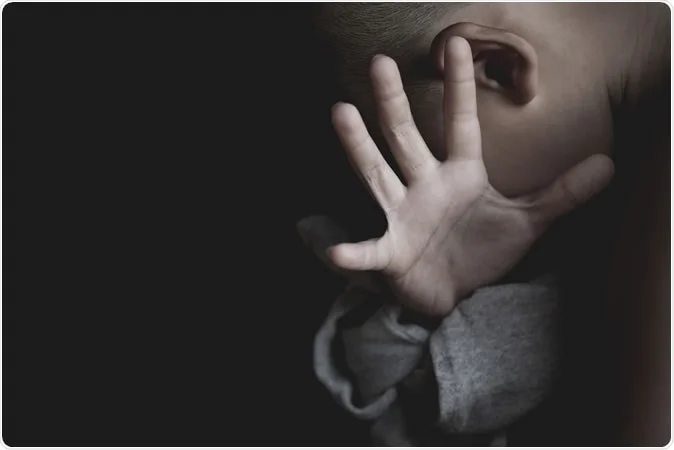In the case CMM (Suing as the Next Friend of and on Behalf of CWM) & 6 others v Standard Group & 4 others (Petition 13 (E015) of 2022), the Supreme Court of Kenya ruled that the publication of minors’ identities and images during a criminal trial violated their right to privacy and the principle of the best interests of the child as protected under Articles 31(c) and 53(2) of the Constitution.
Key Points on Children’s Privacy Rights:
- Best Interests of the Child:
- The Supreme Court emphasized that the best interests of the child are paramount in matters concerning children, including during criminal proceedings.
- The court highlighted that children’s dignity, psychological well-being, and future prospects are protected by safeguarding their privacy.
- Right to Privacy:
- The publication of minors’ names, images, and school details by media outlets violated their right to privacy.
- This protection is reinforced by both the Children Act, 2022 and the Media Council Act, 2013, which restrict identifying minors in cases involving crimes.
- Balancing Public Interest and Privacy:
- The Court held that public interest does not override the minors’ right to privacy, especially in cases where disclosing their identities offers no substantial benefit to the public.
- Media freedom and the principle of open justice must be balanced against the potential harm to children.
- Professional Responsibility:
- The media was found liable for failing to exercise due diligence in protecting the children’s identities.
- The Court criticized the lower courts for failing to apply constitutional and statutory standards correctly, ruling that the children’s privacy rights should have been prioritized.
This ruling sets a critical precedent on the protection of minors’ rights in Kenya, emphasizing the need for media and judicial systems to uphold privacy protections when dealing with children in conflict with the law.
Constitutional Petition:
Charles Muturi Macharia v Standard Group & 4 others [2017] eKLR
On 5th November 2012, the petitioners who were minors and students at Mugoiri Girls’s School were arraigned before a Murang’a Court facing arson related charges. The same day several media houses published and or televised images of the said students with the caption “Arson Suspects”. One media house published the news and the names of the suspects online exposing them to public judgement[1].
A Constitution petition was instituted in 2013 against the media houses at the high court. The petitioners claim is that publishing of the said images offended the provisions of the Children’s Act, particularly sections 4 (2), 13, 18, 19, 22 and 76 and also contravened international conventions guaranteeing the rights to privacy for children in conflict with the law and added that the said infringement is a breach of the constitutionally guaranteed right to privacy hence the declarations sought in the petition and claim for damages for the said breach.
The respondents argue that their reporting was factually correct, made in good faith, and in the public interest. They also claim that the right to privacy is not absolute and that the petitioners have not established a basis for the reliefs sought. The media houses argued that their reports were justified under the principles of open justice and the public’s right to know about school-related arson, which had become a national issue.
The court acknowledged that in proceedings against minor offenders, special considerations have to be made to protect the children’s right to privacy. The Court however cited the limitations in article 24 of the constitution, stating that enjoyment of fundamental rights and freedoms does not prejudice the rights and freedoms of others.
The court found that the petitioners failed to provide sufficient evidence of damage or loss suffered due to the publication of their images. The court emphasizes the need for concrete evidence to support claims of constitutional rights violations. The court stated that the person alleging breach of constitutional rights must prove the loss suffered[2].
The court stated that the respondents did not show any malice as the truth of the articles published was not in question. It stated that the respondents were carrying out their duty to disseminate information of public interest.
Matter was dismissed.
Appeal 1 – Court of Appeal:
Macharia & 6 others (suing as next friends of and on behalf of CWM & 6 Others) v The Standard Group & 4 others (Civil Appeal 296 of 2017) [2022] KECA 610 (KLR) (13 May 2022)
The appellants claimed the media outlets violated the minors’ right to privacy by publishing their names and images in connection with an alleged arson attempt. This right is supported by Article 53(2) of the Constitution and Section 76 of the Children Act, which protects children’s identities in legal proceedings. The appellant also argued that the principle that the best interest of the child should be paramount. This principle is reinforced under international instruments such as the Convention on the Rights of the Child[3] and the African Charter on the Rights and Welfare of the Child[4].
The court emphasized the need to balance the right to privacy of the minors with the media’s right to freedom of expression (Article 33) and freedom of the press (Article 34). The court found that the appellants did not sufficiently prove that the minors’ rights to privacy were violated to a degree that outweighed the public interest in the publication. The court relied on the decision in Joseph Ihugo Mwaura and 82 Others v The Attorney General & Others, where the Appellant submitted that the High Court erred by holding that the Appellants were required to prove damages for breach of constitutional rights before awarding damages whereas Article 23(3) entitles the court to grant any appropriate relief[5].
The appeal was dismissed. The Court ruled that the publication was in the public interest due to the widespread issue of arson in schools, and the appellants failed to demonstrate sufficient harm or violation of privacy rights caused by the media reports.
Appeal 2 – Supreme Court:
CMM (Suing as the Next of Friend of and on Behalf of CWM) & 6 others v Standard Group & 4 others [2023] KESC 68 (KLR)
The Supreme Court emphasized that the best interests of the child are paramount in matters concerning children, including during criminal proceedings. The court highlighted that children’s dignity, psychological well-being, and prospects are protected by safeguarding their privacy. This protection is reinforced by both the Children Act, 2022 and the Media Council Act, 2013, which restrict identifying minors in cases involving crimes. Children should not be identified in cases concerning sexual offences, whether as victims, witnesses or defendants. Except in matters of public interest[6].
The Court held that public interest does not override the minors’ right to privacy, especially in cases where disclosing their identities offers no substantial benefit to the public. Media freedom and the principle of open justice must be balanced against the potential harm to children.
The media was found liable for failing to exercise due diligence in protecting the children’s identities. The Court criticized the lower courts for failing to apply constitutional and statutory standards correctly, ruling that the children’s privacy rights should have been prioritized.
Privacy rights were not observed by the lower courts
Criminal trials in Kenya operate under the principle of open justice, as enshrined in Article 50 of the Constitution, allowing public access and media reporting. This led to journalists being present during the minors’ arraignment, contributing to the violation of privacy.
The trial court did not fully enforce privacy protections for minors. While the magistrate noted the presence of the media and adult remandees, no concrete measures were taken to clear the court or move the proceedings to a private setting.
media failed to verify the ages of the accused and proceeded to publish identifying details, breaching Section 76(5) of the Children Act and ethical standards under the Media Council Act (2013).
The appellants’ advocates also did not immediately request a private hearing or object to the media presence, which the Court of Appeal deemed partly responsible for the privacy lapse.
These factors illustrate a systemic failure to prioritize the right to privacy as established in the Children Act. The Supreme Court however later corrected this by affirming that children’s privacy rights are paramount.
[1] Charles Muturi Macharia v Standard Group & 4 others [2017] eKLR
[2] Romauld James v The Attorney General of Trinidad and Tobago [2010] UKPC 23
[3] United Nations Convention on the Rights of the Child, Article 16
[4] African Charter on the Rights and Welfare of the Child, Article 10
[5] Joseph Ihugo Mwaura and 82 Others v The Attorney General & Others, Nairobi Petition No 498 of 2009 (Unreported)
[6] Media Act No. 3 of 2017, Section 18


